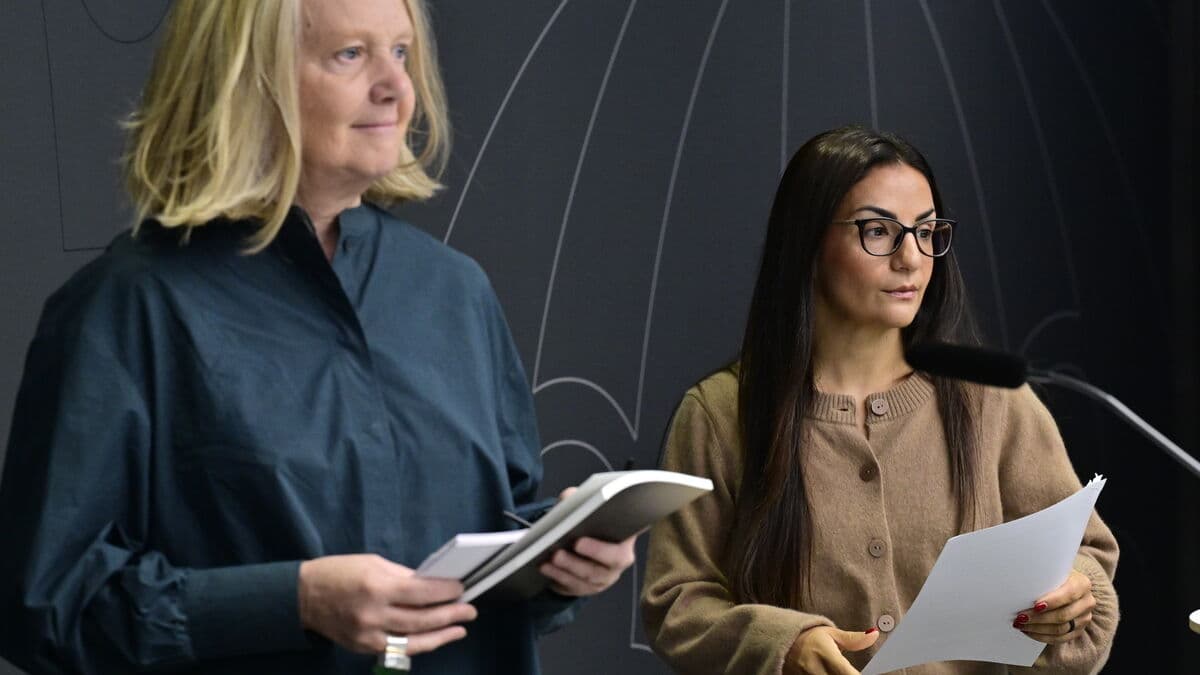The government's special investigator Eva Bergquist is handing over the investigation into illegally streamed TV, so-called ip-tv, to Minister of Culture Parisa Liljestrand (The Moderate Party) on Tuesday morning.
There has been a lack of temporary and current figures regarding the actual scope of this. Now we get a clearer picture of the scope and what tools we can use to counter this, says Liljestrand at the press conference.
Fines for private individuals
Now, the investigation proposes that the "law on prohibition of certain decoding equipment" be rewritten, i.e. changed its name, - so that it can be applied to private individuals who watch illegal ip-tv.
According to Eva Bergquist, around 700,000 Swedes use unauthorized services to stream TV, film, and sports broadcasts.
Does this mean that over half a million Swedes will become criminals when the law comes into force?
We want to make it clear that you should not engage in what is illegal. We want to get away from the gray area and believe that just by highlighting the phenomenon, more people will understand that this feeds the criminal economy and, for example, sports clubs or film and TV producers lose, says Eva Bergquist to TT.
According to the proposal, the penalty for consumers will be fines, while those who conduct the commercial activity may be sentenced to up to six years in prison. During the press conference, TT asked whether the new law can mean million fines for private individuals - like those handed out to file sharers - but how high the fines can be, the Minister of Culture does not want to specify at present.
The investigator's conclusion is also that authorities such as the police and the Tax Agency must prioritize cases involving illegal ip-tv, and that the Patent and Registration Office and the Post and Telecommunications Authority should receive special assignments in the area.
Block
The investigator also proposes the possibility of removing results in search engines that refer to illegal services, and that the government investigates the possibility of "live blocking" - the possibility of shutting down ip addresses and broadcasts - during ongoing events so that rights holders can quickly request blocking of such unauthorized broadcasts.
The investigation into ip-tv is an additional assignment to the film investigation. The legislative changes are proposed to come into force on 1 July 2026.
Sara Haldert/TT
Kristoffer Viita/TT
Fact: The measures proposed
TT
The law on prohibition of decoding equipment should change its name and be amended to clarify that it is prohibited for private individuals to use illegal ip services.
Authorities such as the Tax Agency and the police should prioritize cases of illegal ip-tv.
The Patent and Registration Office and the Post and Telecommunications Authority should receive special assignments in the area.
The government should take the initiative to gather representatives of "affected companies" to drive voluntary efforts to prevent payments to those who sell illegal services.
The government should investigate the possibility of live blocking unauthorized live broadcasts.






